第10章 INTRODUCTORY NOTE(10)
Numerous are the cases in which bodily punishment can occasion irremediable damage, not suspected by the person who administers it, though he may triumphantly declare how the punishment in the specific case has helped. Most adults feel free to tell how a whipping has injured them in one way or another, but when they take up the training of their own children they depend on the effect of such chastisement.
What burning bitterness and desire for vengeance, what canine fawning flattery, does not corporal punishment call forth. It makes the lazy lazier, the obstinate more obstinate, the hard, harder. It strengthens those two emotions, the root of almost all evil in the world, hatred and fear. And as long as blows are made synonymous with education, both of these emotions will keep their mastery over men.
One of the most frequent occasions for recourse to this punishment is obstinacy, but what is called obstinacy is only fear or incapacity. The child repeats a false answer, is threatened with blows, and again repeats it just because he is afraid not to say the right thing. He is struck and then answers rightly. This is a triumph of education; refractoriness is overcome. But what has happened? Increased fear has led to a strong effort of thought, to a momentary increase of self-control. The next day the child will very likely repeat the fault. Where there is real obstinacy on the part of children, I know of cases when corporal punishment has filled them with the lust to kill, either themselves or the person who strikes them. On the other hand I know of others, where a mother has brought an obstinate child to repentance and self-mastery by holding him quietly and calmly on her knees.
How many untrue confessions have been forced by fear of blows; how much daring passion for action, spirit of adventure, play of fancy, and stimulus to discovery has been repressed by this same fear. Even where blows do not cause lying, they always hinder absolute straightforwardness and the down-right personal courage to show oneself as one is. As long as the word "blow" is used at all in a home, no perfect honour will be found in children. So long as the home and the school use this method of education, brutality will be developed in the child himself at the cost of humanity. The child uses on animals, on his young brothers and sisters, on his comrades, the methods applied to himself. He puts in practice the same argument, that "badness" must be cured with blows. Only children accustomed to be treated mildly, learn to see that influence can be gained without using force. To see this is one of man's privileges, sacrificed by man through descending to the methods of the brute. Only by the child seeing his teacher always and everywhere abstaining from the use of actual force, will he come himself to despise force on all those occasions which do not involve the defence of a weaker person against physical superiority. The foundation of the desire for war is to be sought for less in the war games than in the teachers' rod.
To defend corporal discipline, children's own statements are brought in evidence, they are reported as saying they knew they deserved such discipline in order to be made good. There is no lower example of hypocrisy in human nature than this. It is true the child may be sincere in other cases in saying that he feels that through punishment he has atoned for a fault which was weighing upon his conscience. But this is really the foundation of a false system of ethics, the kind which still continues to be preached as Christian, namely; that a fault may be atoned for by sufferings which are not directly connected with the fault. The basis of the new morality is just the opposite as I have already shown. It teaches that no fault can be atoned for, that no one can escape the results of his actions in any way.
Untruthfulness belongs to the faults which the teacher thinks he must most frequently punish with blows. But there is no case in which this method is more dangerous.
When the much-needed guide-book for parents is published, the well-known story of George Washington and the hatchet must appear in it, accompanied by the remark which a clever ten-year-old child added to the anecdote: "It is no trouble telling the truth when one has such a kind father."
I formerly divided untruthfulness into unwilling, shameless, and imaginative lies. A short time ago I ran across a much better division of lying; first "cold" lies, that is, fully conscious untruthfulness which must be punished, and "hot" lies; the expression of an excited temperament or of a vigorous fancy. I agree with the author of this distinction that the last should not be punished but corrected, though not with a pedantic rule of thumb measure, based on how much it exceeds or falls short of truth. It is to be cured by ridicule, a dangerous method of education in general, but useful when one observes that this type of untruthfulness threatens to develop into real untrustworthiness. In dealing with these faults we are very strict towards children, so strict that no lawyer, no politician, no journalist, no poet, could exercise his profession if the same standard were applied to them as to children.